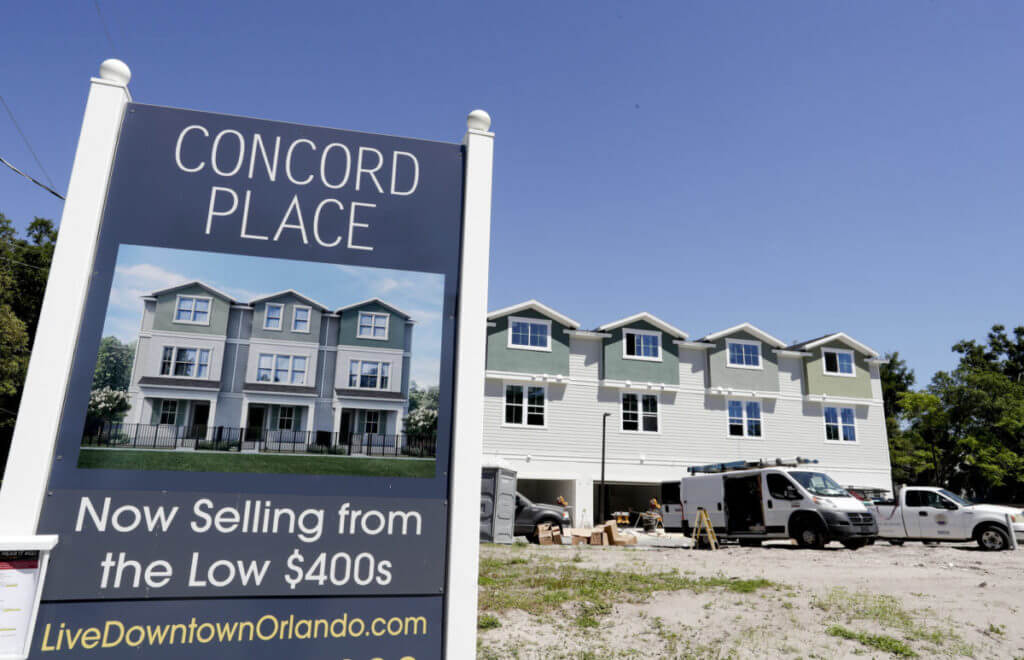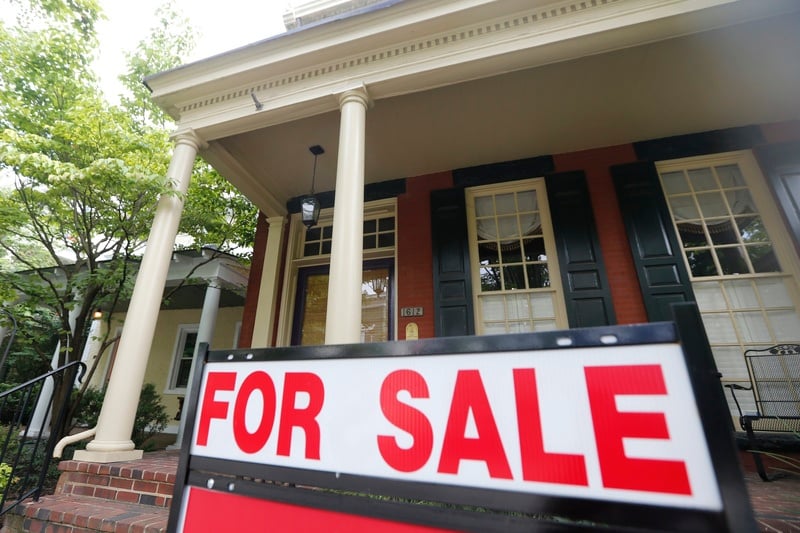Mortgage Applications Crater 30% in Worst Fall Since Housing Market Burst

Mortgage applications tanked last week, painting a grim picture of residential real estate amid the coronavirus pandemic. | Image: AP Photo/John Raoux, File
- Mortgage applications fell 29.4% last week.
- That’s the housing market’s biggest decline since 2009.
- Meanwhile, distressed mortgage REITs can’t cover margin calls.
Mortgage applications cratered last week in another perilous sign for the housing market.
According to the Mortgage Bankers Association (MBA), new mortgage applications plummeted 29.4% for the week ending March 20, 2020 . That’s a breakneck acceleration in mortgage application declines on top of the 8.4% drop in the week prior .
In a statement, MBA executive Joel Kan said:
Home purchase applications were notably impacted by rising rates and the widespread economic disruption and uncertainty over household employment and incomes.
The MBA data revealed a correlation between the housing market swoon and COVID-19. New mortgage applications fell off sharply in states hit worst by coronavirus. For example, New York, California and Oregon.
Coronavirus Gums Up Housing Market Rates
Interestingly, interest rates in the housing market are rising despite an ultra-low rate macro environment. The Federal Reserve slashed the federal funds target to 0% this month and is pumping trillions of dollars into the financial system.
But the average fixed 30-year interest rate for mortgages rose 8 basis points to 3.82%. That’s the highest mortgage rate we’ve seen since the week ending Jan 17.
According to Kan, housing market rates are rising because of volatility and coronavirus-related backlogs:
The 30-year fixed mortgage rate reached its highest level since mid-January last week, even as Treasury yields remained at relatively low levels. Several factors pushed rates higher, including increased secondary market volatility, lenders grappling with capacity issues and backlogs in their pipelines, and remote work staffing challenges.
The free fall in new mortgage applications is the worst since the housing market crashed over a decade ago. Falling demand due to coronavirus fears and recessionary financial stress could tank home values.
Ten years after median home prices hit bottom and began to recover from the last housing crash, some markets still hadn’t recovered. A Lending Tree study found home values even continued to decline over that decade in some markets.
Mortgage Stress Looks Like 2008 Financial Crisis
While decreased demand today threatens the housing market, a potential tidal wave of mortgage defaults could prove catastrophic. As a result, real estate investment trusts (REITs) are reeling from the damage.
Last Monday, AG Mortgage Investment Trust sounded the alarm:
In recent weeks, due to the turmoil in the financial markets resulting from the global pandemic of the Covid-19 virus, the company and its subsidiaries have received an unusually high number of margin calls from financing counterparties.
By Friday the mortgage REIT was out of cash to cover margin calls, saying it,
doesn’t expect to be in a position to fund the anticipated volume of future margin calls under its financing arrangements in the near term.
AG Mortgage said it was in discussion with lenders about forbearance agreements.

AP Photo/Steve Helber
Meanwhile Invesco Mortgage Capital REIT is also short of cash to cover margin calls :
Invesco Mortgage Capital Inc. IVR, 3.575% said Tuesday that it was unable to meet the margin calls it received on March 23, and did not expect to be able to meet the expected volume of future margin calls under its financing arrangements.
Invesco is also discussing forbearance arrangements. It’s looking like the massive mortgage dust-up could cause another financial crisis. Housing market volatility is already spilling over into major losses on bank balance sheets .
After the subprime mortgage crisis caused a credit crunch, the financial industry looked at risk reduction through “macro prudence.” But these measures didn’t go far enough to keep the system stable under something like coronavirus.